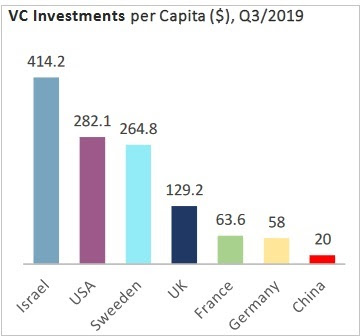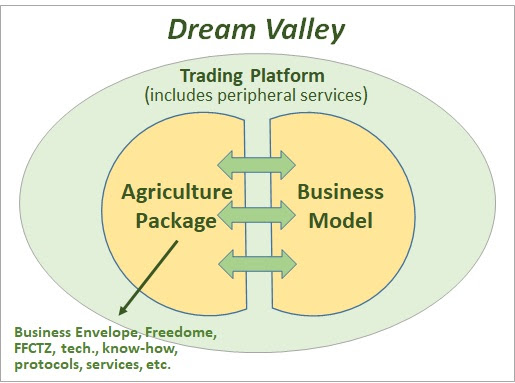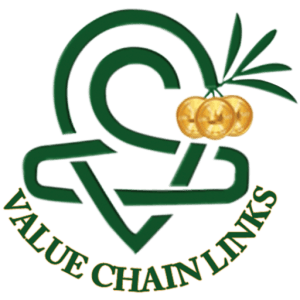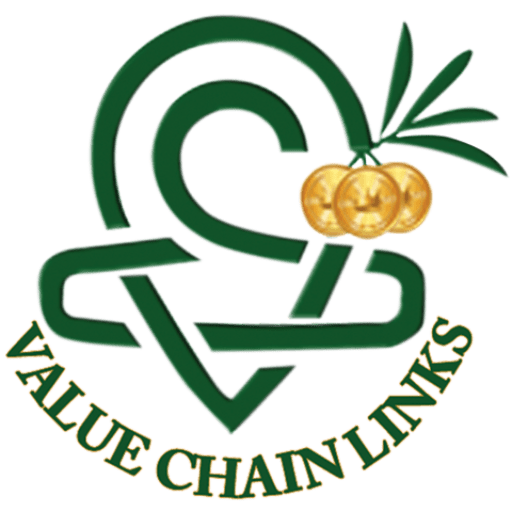IS IT THE TIME FOR “NATIONAL PROGRAMS” IN AGRICULTURE?

BY DR.NIMROD
| More than once, I have addressed the need for governments to regulate everything related to the “business environment,” especially in complex ecosystems such as the agricultural ones.The government’s responsibility is to create a favorable ecosystem that will encourage local entrepreneurship and attract private investors and foreign companies to operate in the country.But, is that all the governments should do to support the local industries?NO, not at all! GOVERNMENT RESPONSIBILITY IS TOTALThere are cases where the governments should… NO, not “should”, there are cases where governments are obligated to step up and introduce fundamental changes to secure a better future.In issues the government believes are critical to the nation’s future, it is the government’s responsibility to take an active role and make them happen! By not doing so, it is neglecting its role and responsibility.I mean, don’t we expect our leaders to have a clear vision and then act to pursue it for the country’s benefit? Isn’t this what leadership is all about?Following are three examples of governments that have organized all of the state’s capabilities to advance an issue of high national strategic importance.1. High-tech – when Israel decided it wanted to leap-frog its high-tech sector, the government invested billions of $ directly into R&D activities and the development of its high-tech ecosystem.Today Israel is ranked #1 in R&D investments per capita, but only 1.5% comes from its government. Hence, Israel’s “hi-tech miracle” is not a miracle but a result of the well-thought, planned, and executed investment program. |

. Space –for decades, the USA has been the global leader in Space activities and exploration. This is thanks to its government’s decision and massive investments over many years, mainly through NASA. Today, private companies, like Elon Mask’s SpaceX or Jeff Bezos, Aerospace company (Blue Origin), privatize the space sector and finance much of USA space activity.
3. Health – The COVID-19 pandemic has given rise to the need for the rapid development and production of vaccines. Pharma companies with the ability to develop such vaccines were supported massively by their governments. This support includes generous funds for R&D and helps with regulation, logistics, PR, etc.
Governments and the private sector can work together. We can expect to see more Mega National Projects, defined and financed by governments and executed by the private business sector.
PRIORITIES
National Projects are a good way for a nation to declare its priorities and pave the way toward the future it wishes to see.
Is it possible that countries with tens of percent of their population livelihood dependent on agriculture, often in poverty, don’t view the need to improve the livelihood of smallholders as their TOP PRIORITY?
Or maybe they view it as a “Top Priority” but can’t imagine or have no idea how they can turn their wishes into a reality!?
I am well familiar with the negative attitude of “I gave up on this dream of mine” or the negative attitude of “this is impossible” from another field where I am involved, i.e., crop protection.
When it comes to fruit fly management, I have heard it all. I can’t count the number of times experts, farmers, and others told me, “it is impossible to manage fruit flies without sprays,” “these fruit flies are unmanageable,” or “we are already used to having 50% fruit loss”.
When they say this, I hear in their voice a surrender to a situation that is uncomfortable for them, but they have adapted to it.
In my view, not succeeding in achieving a goal is frustrating. I get it, and I understand it well.
But giving up before even trying or without a fight is – not an option!
How can you hope for a better future if you give up without investing 110% of your effort? Doing so is sad and exposes a lack of faith, vision, and leadership.
In emerging economies, improving the livelihoods of farmers and the national economy must be defined as a “Top Priority.” Or at least, that is the way it should be defined.
If you live in an emerging economy but enhancing agriculture is not at the TOP of the national priority list, act to change it.
However, if it is on the top of your country’s National Priority List, ask yourself, “How should we realize this into productive results?” What can I do to move the process forward?
GOALS AND RULES
There is no point in setting a National Program for any sector, including the agro-industry, unless measurable goals exist.
Those goals SHOULD NOT be easy to achieve. On the contrary, the goals should reflect the national vision and desired goals, not what you think is achievable.

David Ben Gurion, Israel’s first Prime Minister, once said, “If the experts tell you it is impossible, replace the experts.”
Here are some examples of “challenging goals” for emerging economies:
Double farmers’ income every two years (remember the very low starting point!).
Double the national export of X, Y, and Z crops every two years.
Decrease by half the number of farmers living in poverty within two years.
The next step is to agree on the stakeholders who should be on board and the participants’ roles.
The list of participants is long, but in the case of the agro sector in emerging economies should include at least those:
Government – as the captain leading and stirring the boat, i.e., country.
Farmers – as they are the objects of the program.
NGO & International organizations – ones already active in the territory.
The business sector–is “the economic engine” that will enable the change.
But wait a minute, today we already have those stakeholders on board, yet things are not looking too good.
True!
But, that is the equivalent of saying, “I have a boat with sailors and an engine; how come we didn’t reach our destination yet?”
Well, your boat may not reach its destination on time if, for example –
* It is still anchored to the dock.
* It has no particular destination.
* There are no instructions on how to reach the destination.
* The sailors are not skilled or capable.
* Miscommunication (remember the Tower of Babylon?).
* Using unsuitable technology.
* Missing a captain, i.e., leadership.
To make a change that would improve the overall national economy, we need to provide an environment that will encourage the business sector to invest continuously while profiting all involved.
We do this by introducing novel business models dedicated to the agro sector.
This is in contrast to the typical situation in which the business sector generates income at the expense of farmers who remain poor (a zero-sum game).
START WITH THE CONSUMERS
The master of technologies, Steve Jobs, said, “You have to start with the customer experience and work backward to the technology.”
Let it sink for a moment.
When did you last see a National Program in the agro-industry that didn’t revolve around technology?
I guess it wasn’t recently.
Yes. When preparing for a National Program, you don’t design it around a technology (that may soon change) but focus on the market and customers/consumers.
As the founder and CEO of a unique technology company, I am telling you loud and clear; that focusing on technology is wrong and maybe disastrous for your mission (project) and goals.

The Dream Valley National Export Program (DVNEP), Dream Valley, in short, is a dedicated trading platform for agro-produce from emerging economies.
Note how it is designed;
(a) first, the trading – marketing/customers, and (b) only then the rest – the Agricultural Package and Business Model.
Emerging economies share the need to improve their agro-industry, which means they need to export more and bring back home more hard currency.
How do you do it?
Dream Valley’s attitude to dealing with this challenge is to help the involved farmers or country to increase the added value they create.
A distinctive added value makes it easier to sell to premium markets for a better price.
How do you create added value?
“Start with the customer experience,” as Steve Jobs already pointed out.
Today’s customers’ experience with food products has to do with its origin, health, bio-security, taste, production process, eco-friendly, social awareness, etc.
For most “traditional” old generation stakeholders, these demands seem like an unnecessary headache. In contrast, for Dream Valley consumers’ “new demands” are the ”Bread and Butter” of the model.
I love the (relatively) new customer attitude, so I founded Biofeed 18 years ago to develop non-spray crop protection solutions.
It is also why for 15 years, I studied and researched insect ecology and why before that, for 12 years, I worked hard to reduce the use of sprays and pesticides in my orchards and initiated the first Organic plantations on our Kibbutz farm in Israel.
The result of my life experience is incorporated and reflected in the Dream Valley concept. It is designed to create an economic change through all layers of the national value chain.
Hence, transforming Agriculture into Agro-industry while being based on the 21st consumers’ demand, as expressed by the UN SDGs.
You sure understand that such transformation is not an easy task. Total commitment is a condition for the task’s success.
So the Dream Valley trading platform, unlike other platforms, is committed to becoming part of the ENTIRE value chain. This includes (providing) a tailor-made Agricultural Package, Business Model, and Marketing.
WHERE TO START?
Steve Jobs was right and wrong. Right about the importance of “customer experience” and wrong about the “start,” as Jobs wrongly pre-assumed that all managers are like him, already have a Vision.
Often, companies (and even countries) “jump” on business opportunities and deals that directly impact their immediate income at the expense of building a long-term business strategy based on a vision related to their values.
Unfortunately, existing approaches to advancing agriculture in emerging economies have not produced the expected and desired results.
Emerging economies need a more cohesive, coherent vision energized by a dedicated business model to lead them through the transformation from traditional agriculture to a business-oriented agro-industry.
If the mighty USA understood that it could only pursue its vision and mission to lead the space domain by working hand in hand with commercial companies, e.g., SpaceX, then why emerging economies wouldn’t imitate that approach?
USA space program, i.e., NASA, contracted with SpaceX not because it was the biggest or oldest in the aviation industry but because it has a compatible vision for decades ahead and dedicated leadership that proved to bring results.
Whoever spoke with me knows that I start not by asking, “What do you need” (which too often people don’t know), but by asking, “What are your vision (wishes) and goals?”
From the vision and goal, we work our way back to what they need. If you don’t have a clear vision and goals, we will work together to define those.
Dream Valley was created and designed to deliver National Programs for the agro sector related to and based on your country’s vision and goals for a better future.
Contact me to learn more about how Dream Valley can help you advance your country’s National Programs.
BONUS: For extra inspiration, watch the movie RETURN TO SPACE (Netflix).
| TAKEAWAYS» NATIONAL PROGRAMS are a powerful tool for changing, building, and strengthening the national vision.» THE INTEGRATION of the private business sector in implementing national programs creates a power multiplier of complementary advantages.» WISE USE of National Programs can accelerate national economic development and farmers’ livelihood. |

